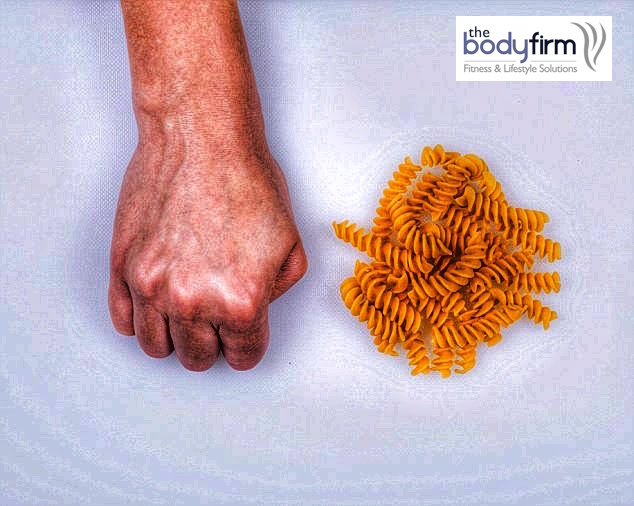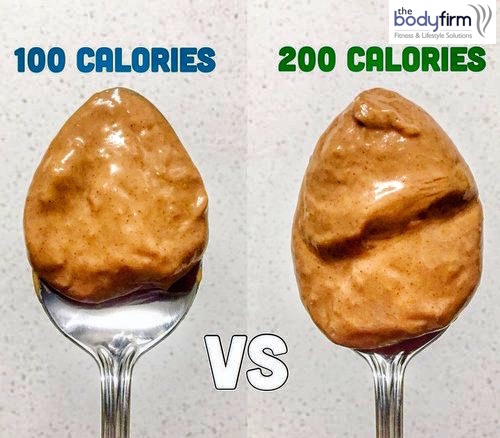Seven tips to help you lose body fat this Autumn


Most of my success with training individuals to reach body fat loss or body transformations aren’t about giving something new and radical – rather it’s about finding what is required to ensure well proven plans work for you. Staying on track for your diet is hard, it’s a paradox that dieting is in itself simple – eat less calories than you burn each day, but simple and easy don’t go hand in hand and that’s why people keep searching out the latest diet to find that one that works for them, the one that lets simple become easy. In truth it doesn’t matter which diet you choose, the one that works is the one you adhere to and that comes down to understanding what pulls you off course.
Below are a variety of factors which maybe derailing your diet and ensuring you understand these factors and taking action on them will lead to greater success within your diet
You haven’t controlled portion sizing – seems simple but often it’s not just what we eat but how much we eat. When reviewing food diaries things can look on track but misunderstanding an actual portion size of a food can have clear impact on the total calories you are eating. It’s very cliche but what you measure you can manage. A simple method of controlling portion size for foods is using your hand – a portion of carbohydrates (potatoes, pasta, rice etc) should be the size of you clenched fist, a portion of protein should be the size of your palm. This works well for most as it accounts for larger individuals requiring larger portions whilst still controlling your portion simply without dragging out the scales each time.

You eat trigger foods – we all have them, a food which we cannot control the quantity of or set us off on a food binge. Eliminating these foods often makes controlling your diet easier.
Going through your cupboards and removing these items is one simple step – not buying them is another.
Your diet is far too extreme – the harder you attack something the more chance you have of fatigue and slipping up. Greater restrictions makes it more likely you will come off plan – this has both an immediate impact on impairing your diet but also sets you up for quitting. Greater flexibility in dieting and less severe calorie restriction will make it more likely you will have long term success, even if success takes longer.
You haven’t cleared your life from trigger/off diet foods – if it is sitting in your cupboard its in a very tempting place when hunger, boredom and the inevitable tough time of dieting hits. The easier it is to reach from something off limits the more likely you will be to succumb to it. Don’t have it in the house, if you need to leave home to go get something you’ll be less inclined to go off diet.
Work out what is your trigger food. Take some time to clear these from your cupboards and home – if you have them in your house consider donating them to a foodbank so they are no longer in your home.
You haven’t found an alternative to eating – for most of us eating is a habitual activity, we eat at preset times and we ingrain eating with our other behaviours, finding new habits and filling our time will ensure we do not fall back on old habits and old eating behaviours Avoid boredom and keep busy, if you don’t you’re more likely to succumb to eating as a way to fill your time.
Set yourself a goal of doing something different to break these habits – if you find yourself reaching for foods when you watch TV then set a target of reading a book per week to minimise the TV time.
You haven’t got the background habits dialled in – much like anything in life the old adage of ‘’failure to prepare is preparing to fail’’. If you start to form habits which enhance your likelihood to adhere to the diet your life will be easier. Looking at it simply if you plan to eat an apple a day are you buying seven apples in your weekly shop? If you’re not it’s going to require more effort on a daily basis to stick to your diet. Spending an hour each week to plan out your foods and writing your shopping list saves a large amount of time each week trying to find foods required on the hop.
You haven’t separated food from a reward status – food should be enjoyed but it also requires it to be removed as an emotional reward, when times become tough we seek out things that make us feel better and if that’s off diet food treats you will inevitably find yourself going off diet when life is hitting us hard and we are feeling under pressure.
As stated food should be enjoyed but it should not be a go to reward or comfort in times of emotional stress, learning other coping mechanisms will go a long way to ensuring you do not find yourself on a slippery slope when emotions are high – more often than not the short term reward will just make emotions worse when the pain of regret hits.
If food is a reward for you consider putting the money aside spent on food towards another treat or reward that you have been wanting.
If you notice the word used in most of the titles above – HAVEN’T. It denotes an action you are not taking, you have control and its about finding the right actions to eliminate these derailing habits in order you succeed in your dieting attempts.
Some simple habits will make dieting easier and it requires being mindful of all your behaviours to ensure you stay on track.
Glen Danbury
Personal Trainer and Masters in Nutrition
All services are provided by instructors on a self-employed basis.
Sign up and get £10 OFF your first booking